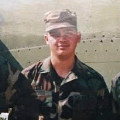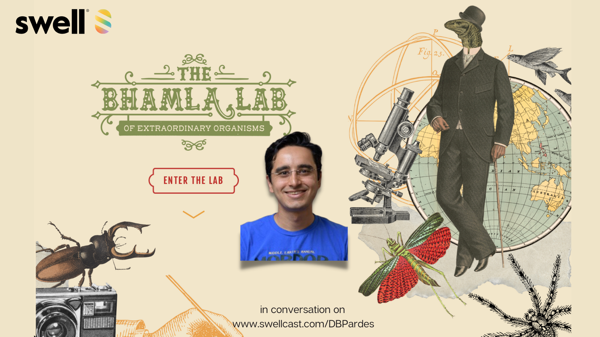
Deborah Pardes
@DBPardes · 3:07
HOW INSECTS PEE - "It’s not a bug - it’s a feature"
And that's different than how we pee because we have streams of fluid, right? And he looks at the difference of that and he kind of takes us on this little journey. The biggest part of assad's exploration is on science has to do with nurturing our curiosity, because once you get especially young minds around the fascination of science, it becomes the thing they want to do a lot because it's surprising, it's playful, and when you put things under a microscope, it's just fascinating
Okay. I did not know that studying insect pee was a thing, but now I am weirdly fascinated. I know that with humans, you can tell in general about humans things about their pee, but also, then very specifically about this specific human and their health. Does this also apply to insects? Are there general things that you're learning about insects? And then is there specific information you're learning about this specific insect that you're studying? What kinds of things are you learning?
Saad Bhamla
@saadb · 4:04
We have projects on trying to understand how teams of sled dogs can go for hundreds of miles in Antarctica and how spiders can launch themselves. So when I realized that I could have basically a career in studying living systems and trying to understand their physics, it's just this Alice in Wonderland kind of thing. You just keep going down these rabbit holes, and just one thing leads to another

Theo Seibold
@Thatoneweirdo · 2:27
And that there is just so much life above ground, the sky, the ocean. And to just have an understanding of that I think is so important in so many ways. And I think outside of scientists themselves or people in the scientific community, I don't know how much people really connect to that anymore. And it's kind of unfortunate because it's not just us on this planet. We're not alone, and we tend to think we're the sole purpose for it all

Deborah Pardes
@DBPardes · 2:22
Do you look for oh, now let's use this for this? Or is it just a way to understand it? And have you ever used something differently because you've mechanized created a robot simulation of an insect, and then you say, let's try this. I know that when spiders throw their web, there's something there that we learn from. So can you give us an example of how a real life world mimics what we learned from insects?
Saad Bhamla
@saadb · 4:47
So I think this classic example when people think about this is this concept of biomimicry, or bioinspiration where we might consider velcro as inspired from plants that might attach to things to hitch a ride, or thinking about how ants navigate a cluttered rainforest and how that might inspire swarm robotics, or how we coordinate drones, et cetera, et cetera. And I think that's all valid and that's there. But I want to offer you a slightly different perspective, at least how I approach this

Deborah Pardes
@DBPardes · 1:49
And do you ever work with commercial entities, or is it always just grant based, just curious to let us know how you're thriving, and so we understand that part of your world as well. Thank you so, so much. This has been a thrill

